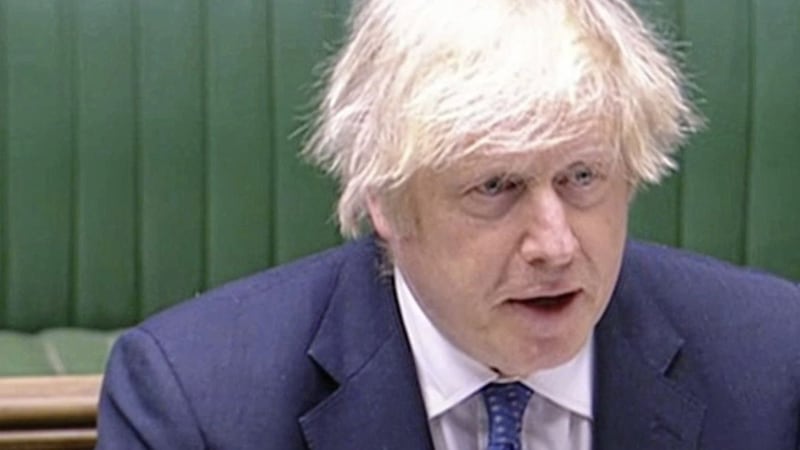Remember Boris Johnson’s tunnel to Scotland? Vaguely, because no one took it seriously? A sop to unionists to make them feel part of the crumbling entity called the UK after he created the Irish Sea border which he said wasn’t a border.
Then again, his ventriloquist dummy here also said there was no border. Anyway, dead in the water, or rather dead underwater.
Not as far as other advocates of the union are concerned. In a futile attempt to give the project CPR those two bastions of the union, Radio Ulster and Radio Scotland, have made a joint documentary about the never to be dug tunnel. By the way, why is Radio Ulster called Radio Ulster – an exclusively unionist term that James Craig’s cabinet wanted to call this sub-polity – when it’s BBCNI? Why not RadioNI? Just asking.
One of the main advocates for the daft idea in the programme is Guto Harri, Johnson’s director of communications when he was mayor of London. Like Harri, who has recently departed the right-wing GB News after taking the knee, knows something about major engineering projects? Well yes, up to a point. Like Johnson’s infamous garden bridge across the Thames which blew £37.5 million of public money on plans and feasibility studies and publicity stunts, but caused not a ripple in the Thames. Like Johnson’s third London airport in the Thames or his unused empty Emirates Airline cable car or the tangled spiral mess of the folly, the ArcelorMittal Orbit. All vanity projects of Johnson self-promotion.
The joint radio documentary actually takes the dead tunnel distraction seriously, talking about various engineering schemes and techniques that could be used to blow £20 billion, yes, that’s billions of public money. There’s no reference to Johnson’s predilection for promising private finance, raiding the public purse and, as the inquiry into the misbegotten garden bridge concluded, barging through planning procedures, flouting procurement rules and handing fees around his chumocracy with the end result wildly expensive zeros.
The government has got the BBC exactly where it wants it, supine on the floor with Johnson’s boot on its neck. For example, have you noticed in the last couple of weeks when growers, suppliers and caterers have been begging the British government to relax rules on foreign workers because of Brexit, BBC interviewers have been assiduously avoiding referring to Brexit as the cause of empty shelves, no not here, but in England. Instead, interviewers have been desperate to have employers say it’s a shortage of lorry drivers in the holiday period, not because they can’t get visas. However, don’t mention Brexit; might annoy the government.
Now, has it dawned on our documentary makers that there could be an ulterior motive for Johnson pushing an Irish Sea link into the upcoming Hendy review of the UK’s road, rail and air links? Quite simply Johnson is opposed to devolution. He believes Scottish devolution has been “a disaster”. In his Brexit legislation he has taken back as many powers as he can from devolved administrations. He has set up here an office of the UK Department of Housing, Communities and Local Government (MHCLG) which Stormont minister Nichola Mallon said is only, “the latest step in dismantling devolution”. Her Scottish counterpart is of the same view.
Yes, the BBC documentary mentions the views of the relevant ministers in Scotland and here but ignores the basic drive behind the review of UK transport which is anti-devolution and aims, as the statement setting up the MHCLG office here says, “to prioritize spending plans”, exactly what devolved administrations are for.
Radio Ulster and Radio Scotland have taken the Hendy review including the preposterous Irish Sea link at face value. They can’t see the wood for the trees.









